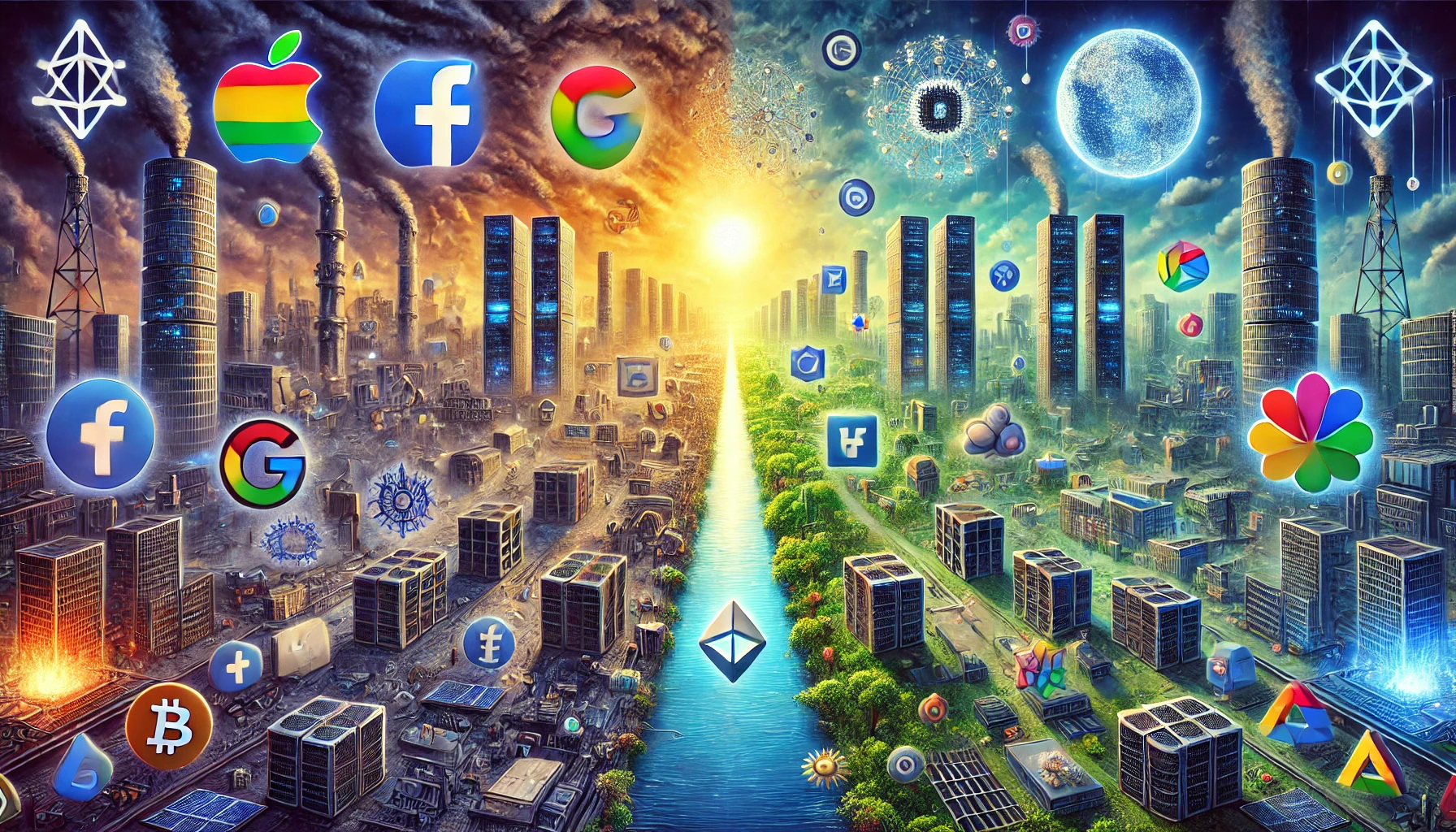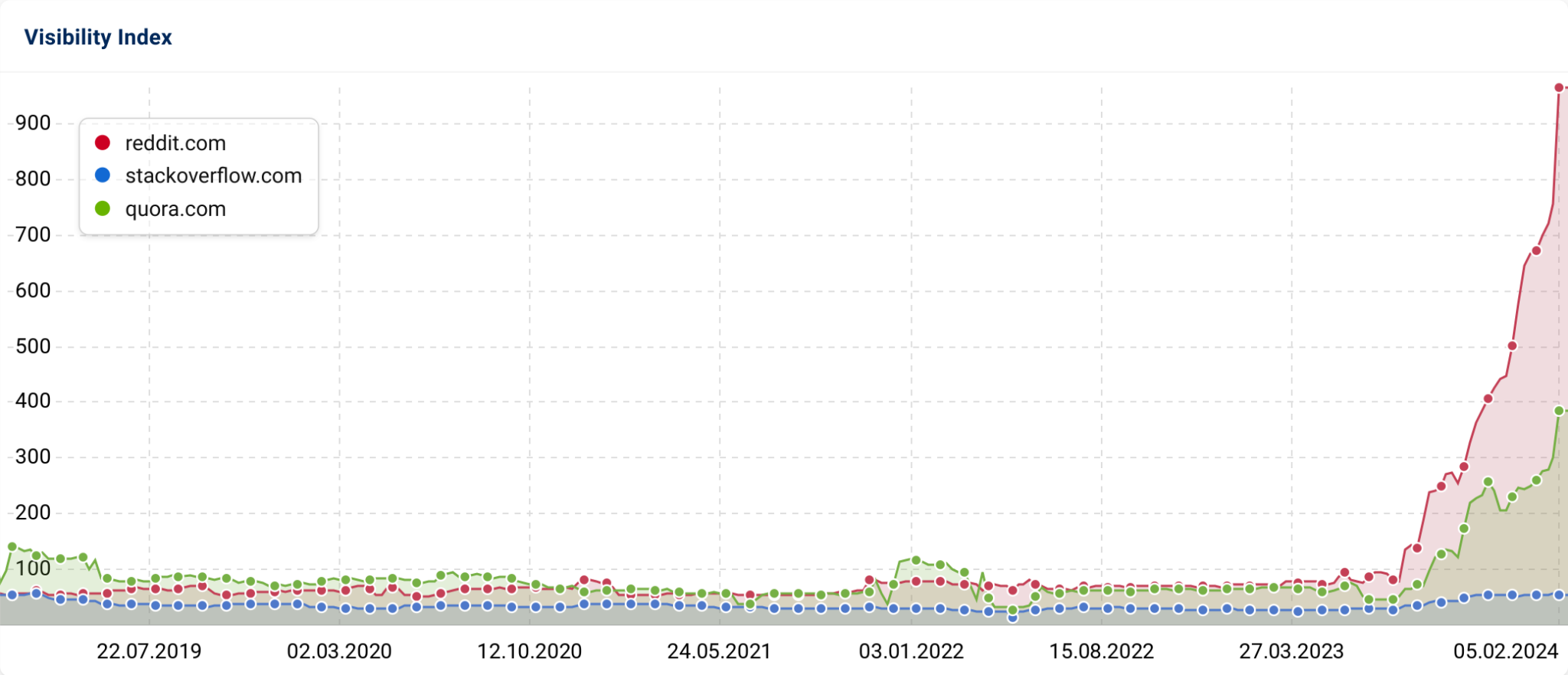The Future of the Open Web
Last updated: August 4, 2024

Navigating Centralization, Decentralization, and Business Opportunities: Current Issues with Centralized Conglomerates
Large corporations like Google, Facebook, and Amazon dominate the current web landscape, acting as centralized hubs for content and services. This centralization brings both advantages and significant challenges:
Pros:
- Ease of Use: Platforms provided by these conglomerates are user-friendly and accessible, allowing individuals and businesses to broadcast content or launch online services with minimal technical expertise.
- Reach and Audience: These platforms have massive user bases, offering businesses and content creators immediate access to a global audience.
- Monetization: Built-in monetization tools such as ads, affiliate programs, and direct sales make it easier for users to generate revenue.
- Infrastructure: Robust and scalable infrastructure provided by these companies ensures reliability and performance for users.
Cons:
- Data Privacy and Control: Users often have limited control over their data, which can be harvested, sold, or used for targeted advertising without explicit consent.
- Content Moderation and Censorship: Centralized control can lead to biased content moderation and censorship, potentially stifling free speech and diverse viewpoints.
- Monopolistic Practices: These conglomerates can engage in anti-competitive behaviors, stifling innovation and limiting opportunities for smaller players.
- Revenue Sharing: High fees and revenue-sharing models can be unfavorable for content creators and small businesses.
Decentralization and Web3: The Future of the Open Web
Decentralization and Web3 technologies promise to address many of the issues posed by centralized conglomerates. Here’s a closer look at what decentralization entails and what the future may hold:
Decentralization / Web3:
- User Empowerment: Users have greater control over their data and online identities. Blockchain technology, for example, can ensure data ownership and privacy. As Vitalik Buterin, co-founder of Ethereum, states, "Decentralization is about reducing single points of failure and empowering individuals" (Ethereum).
- Interoperability: Decentralized platforms emphasize interoperability, allowing seamless integration between different services and applications without relying on a single provider.
- Trust and Transparency: Blockchain and decentralized technologies enhance trust through transparent and immutable records, reducing the risk of fraud and manipulation. According to a report by the IEEE, "Blockchain's transparency can provide an unalterable audit trail, increasing trust in digital transactions" (IEEE).
- Reduced Censorship: Decentralized networks are less prone to censorship, promoting freedom of expression and diverse content.
- New Economic Models: Web3 introduces new monetization methods, such as cryptocurrencies and token economies, enabling fairer revenue distribution and reducing dependence on ad-based models.
Challenges of Decentralization:
- Complexity: Decentralized systems can be more complex to use and understand, requiring higher technical knowledge.
- Scalability: Ensuring the scalability of decentralized platforms to handle large volumes of transactions and data remains a significant challenge.
- Regulation: Navigating the regulatory landscape for decentralized technologies is complex, with many legal and compliance issues yet to be resolved.
- Security: While decentralization can enhance security, it also introduces new risks, such as vulnerabilities in smart contracts and the potential for decentralized fraud.
The Future: Balancing Centralization and Decentralization
The future of the Open Web will likely see a balance between centralized and decentralized models. Here’s what it might look like:
- Hybrid Models: Combining the best of both worlds, hybrid models will offer user-friendly interfaces of centralized systems with the privacy and control of decentralized technologies.
- Increased Collaboration: Greater collaboration between big tech companies and decentralized initiatives will drive innovation and improve interoperability.
- Enhanced Privacy and Security: Advances in cryptographic techniques and privacy-preserving technologies will enhance user security and data privacy across all web platforms.
- Regulatory Evolution: Governments and regulatory bodies will evolve to better understand and accommodate the unique aspects of decentralized technologies, fostering innovation while protecting users.
- Community-Driven Development: The open web will continue to thrive on community-driven development, with open-source projects and decentralized organizations playing key roles in shaping its future.
The Open Web's future holds the promise of a more equitable, user-centric internet, where individuals have greater control over their digital lives, and innovation thrives without the constraints of monopolistic control.
What the Open Web Will Look Like
Decentralized Infrastructure:
- The Open Web will be built on decentralized infrastructure, using technologies like blockchain, IPFS (InterPlanetary File System), and distributed cloud services. Juan Benet, creator of IPFS, explains, "IPFS makes the web faster, safer, and more open by replacing the location-based HTTP with a content-addressed model" (IPFS).
- Data will be stored across multiple nodes, reducing dependence on centralized servers and increasing resilience against outages and attacks.
User Empowerment and Control:
- Users will have greater control over their data and digital identities. Personal data will be owned and managed by individuals, not corporations.
- Tools like decentralized identifiers (DIDs) and self-sovereign identities (SSI) will enable users to control access to their information.
Interoperability and Connectivity:
- Seamless interoperability between different platforms and services will be standard, allowing users to move their data and digital assets freely across the web.
- Standards and protocols developed by organizations like the W3C will ensure that different systems can work together harmoniously.
Privacy and Security:
- Enhanced privacy features will be built into the fabric of the Open Web, with end-to-end encryption and zero-knowledge proofs becoming commonplace.
- Decentralized applications (dApps) will operate without exposing user data, and smart contracts will automate trust without intermediaries.
Content Moderation and Governance:
- Content moderation will be community-driven and transparent, leveraging decentralized autonomous organizations (DAOs) for decision-making. DAOs enable community governance through token-based voting systems, ensuring a more democratic approach to content moderation and platform rules.
- Governance models will be more democratic, giving users a voice in how platforms operate and evolve.
Usability of the Open Web
User-Friendly Interfaces:
- Decentralized applications will offer user-friendly interfaces, comparable to today's centralized platforms. Efforts are underway to make decentralized technologies accessible to non-technical users.
- Tools and services will abstract the complexity of underlying technologies, making it as easy to use decentralized apps as it is to use current web applications.
Setting Up a Website:
Traditional Model: Setting up a traditional website involves purchasing a domain, choosing a hosting provider, configuring servers, and managing backend infrastructure.
Open Web Model: On the Open Web, setting up a website will be streamlined:
- Decentralized Hosting: Use decentralized hosting platforms like IPFS or Filecoin, where files are distributed across a network rather than stored on a single server. For example, Filecoin uses a decentralized network of nodes to store data, making it more resilient and reducing the risk of data loss or censorship.
- Smart Contracts: Utilize smart contracts for domain registration and management, ensuring transparency and reducing the risk of censorship. Platforms like Ethereum allow for the creation of smart contracts that can automate domain management tasks, providing a more secure and tamper-proof system.
- Drag-and-Drop Builders: Leverage decentralized website builders that offer drag-and-drop interfaces, similar to current platforms like Wix or WordPress, but with the benefits of decentralization. Tools like DappHero enable users to build dApps with minimal coding knowledge, simplifying the creation process.
- Integrated Payments: Integrate payment systems using cryptocurrencies or decentralized finance (DeFi) solutions without needing third-party payment processors. Services like Metamask enable seamless crypto transactions, reducing fees and increasing privacy.
Differences Between Traditional and Open Web Setups
Centralized Server Hosting:
- Traditional: Requires purchasing hosting plans, managing server uptime, security patches, and dealing with potential single points of failure.
- Open Web: Eliminates single points of failure with distributed hosting, enhancing security and uptime. Users interact with decentralized networks to deploy and maintain their sites.
Data Ownership and Privacy:
- Traditional: User data is often stored on centralized servers, controlled by hosting providers or platform owners.
- Open Web: Data is stored in a decentralized manner, with users retaining ownership and control. Privacy is built into the core, reducing risks of data breaches and unauthorized access.
Accessibility and Interoperability:
- Traditional: Limited by the proprietary nature of platforms and services, requiring custom integrations.
- Open Web: Enhanced interoperability allows seamless integration across different platforms and services, facilitated by open standards and protocols.
Cost and Scalability:
- Traditional: Costs can vary widely based on hosting plans, server resources, and scalability needs.
- Open Web: Costs are distributed across the network, potentially reducing individual expenses and providing scalable solutions without the need for extensive infrastructure investment.
Conclusion
The Open Web of the future promises to be more user-centric, secure, and interoperable. Setting up and managing online content will be easier, leveraging decentralized technologies to offer robust, resilient, and privacy-focused alternatives to today's centralized systems. As these technologies mature, the Open Web will become increasingly accessible, empowering users and fostering innovation across the digital landscape.


